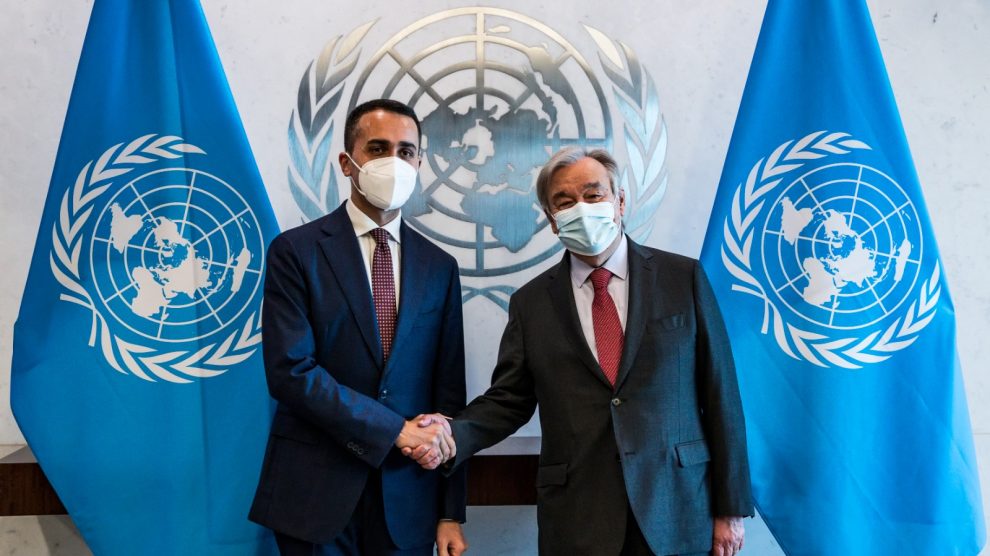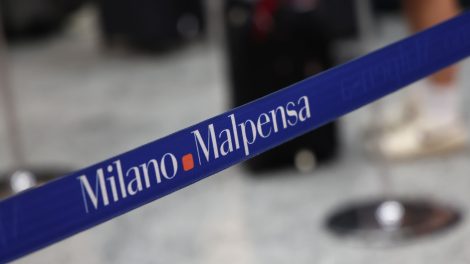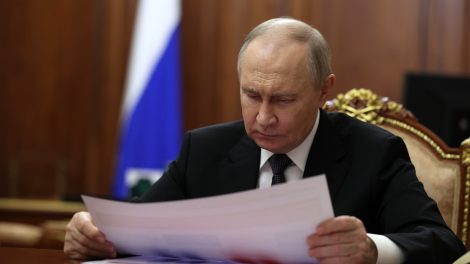Italy’s four-step peace plan. During his New York mission, Italian Foreign Minister Luigi Di Maio presented António Guterres, UN Secretary-General, with the Italian government’s plan for peace between Ukraine and Russia. Under the supervision of an International Facilitation Group, it entails:
- A ceasefire and dismantling of the front line;
- Ukraine’s neutrality (ensured by third countries) and its entry into the European Union further down the line;
- Dispute settlement for territorial issues, such as Donbas and Crimea;
- A multilateral agreement for security in Europe with disarmament and arms control, conflict prevention and confidence-building measures.
Looking ahead. The war “could last more than a year. There is no perception that it could end anytime soon,” Mr Di Maio later told the press, stressing that “a lot depends on how much we – as international community and EU, the gentle force in the world – engage.”
- Italy has three key focuses: peace, energy, and food security, he added.
Avoiding world war wheat. Hunger “brings instability, terrorism, coup attempts, poverty” and thus new waves of migration to Europe, said FM Di Maio at the “Global Food Security Call to Action” ministerial meeting, which was called for by the Biden administration.
- US Secretary of State Antony Blinken presided over it. He called on governments and international organisations to join forces in “push[ing] the Russian Federation to create corridors so that food and other vital supplies can safely leave Ukraine by land or sea” – something Mr Di Maio said he was working on.
- The invaded nation used to act as the bread reserve for developing countries (the World Food Program sourced 50% of its wheat there).
Prices are on the rise… Mr Di Maio noted that the Russian invasion of Ukraine could cause wheat prices to rise as much as 20% by year’s end.
- The latest – worrying – data foresees a 4.6% increase for durum wheat and 5.48% for soft wheat).
… because grain is being weaponised. German FM Annalena Baerbock stated that Russia is “using hunger as a weapon to demand allegiance;” Linda Thomas-Greenfield, US Ambassador to the UN, noted how the Russian army has been operating along the Ukrainian Black Sea coasts to prevent ships from sailing in and out.
Turkey, you there? The NATO country controls access to the Black Sea via the Bosphorus Strait. FM Di Maio raised the issue during a bilateral meeting with his Turkish counterpart Mevlüt Çavuşoğlu. But Ankara is momentarily more preoccupied by Finland and Sweden’s bid to join NATO.
- “I don’t have the perception that Turkey wants to veto it. There is no blockade on the principle of open doors,” said Mr Di Maio, adding that Turkey will “probably ask for guarantees on mostly bilateral issues.”
Shifting power balances. Russia seems willing to engage with the West over food security. But more alarms are ringing elsewhere, signalling that food security will become a major issue in international politics and will lay the groundwork for new alliances.
- India, the world’s second-largest wheat-producing country after China, announced an export freeze on most of its production last Friday (despite Prime Minister Narendra Modi promising the opposite during a recent trip to the EU).
- New Delhi drew a parallel with some Western countries’ decision to halt Covid vaccine shipments to prioritise their own population temporarily.
- China defended India’s decision in its regulation and criticised the G7, which had expressed “concerns” over the wheat export freeze in a joint note last week.
The Ministerial Dialogue with Mediterranean countries was the last thing FM Di Maio announced.
- This platform is being set up in collaboration with the German G7 presidency and the UN’s Food and Agriculture Organisation.
- It’s meant to flesh out “new UN policies to help lower the price of food commodities.”
- The first meeting will be held in Rome on June 8, with Italy, Lebanon and Turkey as co-chairs.
- The Matera Declaration on food security, which was signed last year during Italy’s G20 presidency, will be the Dialogue’s starting point.
(Photo: Twitter @ItalyMFA)




